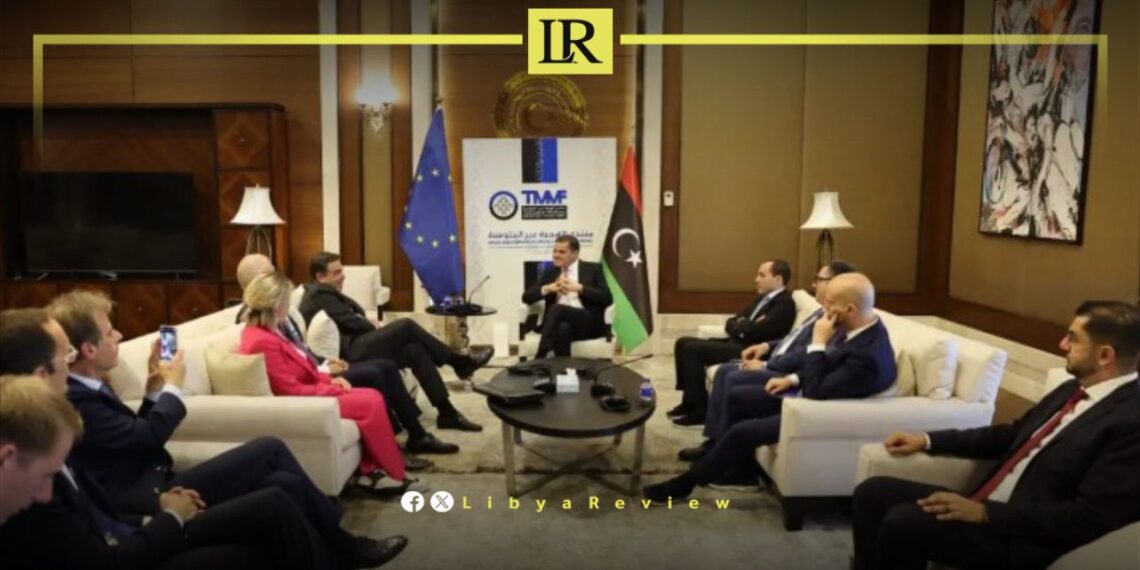On Wednesday, Vice President of the European Commission, Margaritis Schinas, commended the successful organization and hospitality of the Mediterranean Migration Forum held in Tripoli.
His remarks came during a meeting with Prime Minister Abdul Hamid Dbaiba of the Government of National Unity on the sidelines of the forum.
The Government of National Unity’s media office reported that the meeting aimed to enhance cooperation between the Libyan government and the European Union on shared issues. Prime Minister Dbaiba emphasized the government’s stance on the European Union’s commitments regarding irregular migration.
Both parties praised the recent decision to abolish return visas for repatriated migrants, marking a significant step in addressing migration challenges.
The Mediterranean Migration Forum in Tripoli comes at a crucial time as Libya grapples with complex migration issues. As a primary transit point for migrants attempting to reach Europe, Libya has been at the center of international efforts to manage migration flows and improve conditions for migrants.
The forum provided a platform for high-level discussions on migration, bringing together representatives from various countries and international organizations.
The successful organization and warm hospitality highlighted by Vice President Schinas reflect Libya’s commitment to addressing migration issues collaboratively with international partners.
Libya’s strategic location makes it a key player in managing Mediterranean migration. The country’s political stability and cooperation with international entities like the European Union are vital for implementing effective migration policies.
Dbaiba’s emphasis on the EU’s commitments underscores the need for a balanced approach that considers the interests and responsibilities of both regions.
The decision to abolish return visas for repatriated migrants is a significant development. This policy change aims to facilitate the safe and dignified return of migrants to their home countries, reducing bureaucratic hurdles and enhancing cooperation between Libya and the EU. It also aligns with broader efforts to ensure humane treatment and support for migrants.


